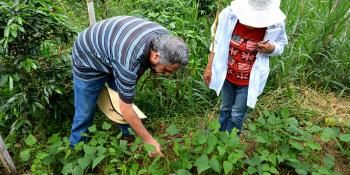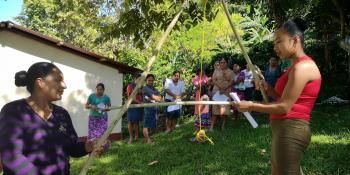Gendering climate-smart agriculture in Doyogena, Ethiopia
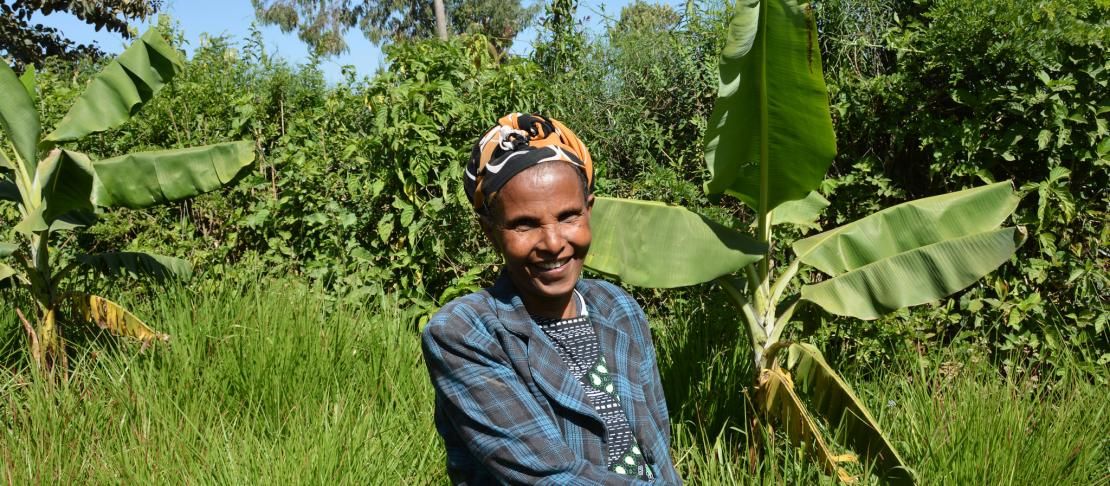
Climate change does not impact all genders equitably. Gender-inclusive climate strategies need to pave the way for improved access.
In November 2018, the CGIAR Research Program on Climate Change, Agriculture and Food Security in East Africa (CCAFS EA) coordinated a field visit to Doyogena climate-smart landscape in Southern Ethiopia, with the objective of exploring opportunities for scaling-up climate-smart practices in a gender-responsive manner.
The field exchange included the participation of diverse partners and institutions, including the United Nations Entity for Gender Equality and the Empowerment of Women (UN Women), Addis Ababa University (AAU), the International Center for Agricultural Research in the Dry Areas (ICARDA), the International Maize and Wheat Improvement Center (CIMMYT), the Society for Women and AIDS in Africa - Ethiopia (SWAAE), Inter Aide and the Doyogena District Agricultural Office of the Ministry of Agriculture and Livestock Resources (MoALR).
Community breeding programs are delivering positive results
During the field experience, participants were exposed to climate-smart crop and livestock production systems. These climate-smart activities integrate soil and water conservation measures with community-based small ruminant breeding programs (CBBPs) to optimize the benefits of adopted practices.
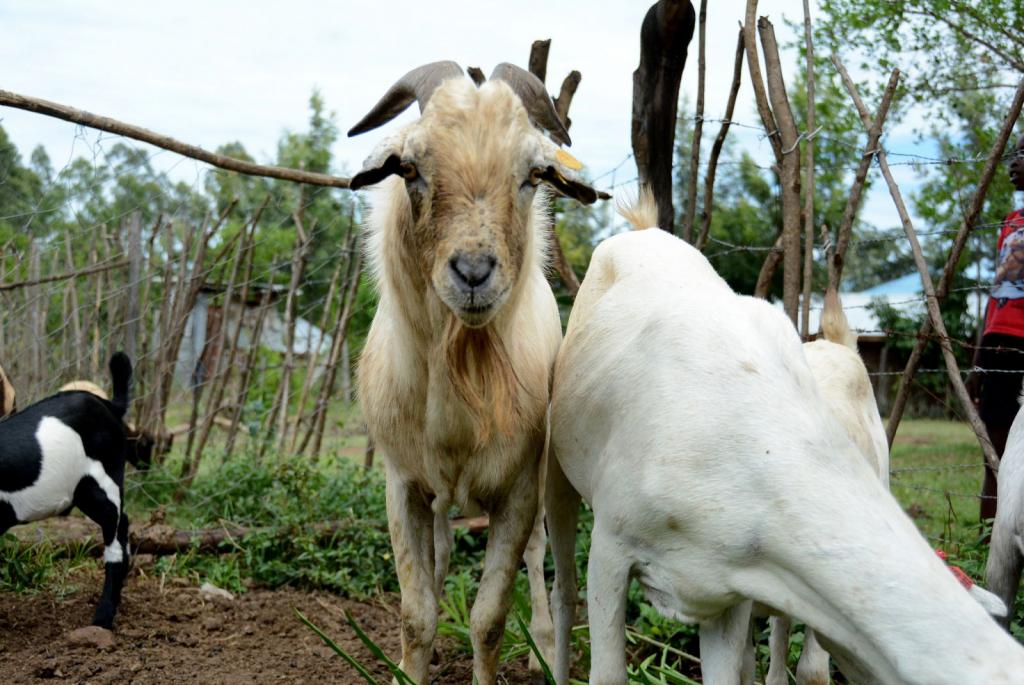
Sustainable ruminant breeding programs in climate-smart landscapes are boosting the incomes and resilience of farmers under climate change. Photo: S. Kilungu (CCAFS)
CBBPs have been successfully applied in Doyogena for more than eight years, providing locally improved rams for the community and facilitating trainings on climate-smart livestock management. The concept was developed by a collaboration between ICARDA, the International Livestock Research Institute (ILRI), the University of Natural Resources and Life Sciences (BOKU) and the Ethiopian Institute of Agricultural Research (EIAR). CCAFS and ICARDA are currently coordinating two CBBPs in two kebeles of Doyogena.
As part of the program, breeders' cooperatives have been established to manage operations. The program has delivered multiple benefits to the community, including a 20-30% income increase and an average ram weight gain of 0.25 kg per year. In the words of farmer Anedesew Alefe, who has been part of the CBBPs throughout their entire duration: “I have sold 5000 sheep so far, which has given me great economic benefits”.
At present, the program lacks equitable gender representation, as only one quarter of the breeders’ cooperative members are women. Simegn Kuma, Women’s Economic Empowerment Program Officer at UN Women, stated “appropriate targeting is needed right from the beginning of a program to strategically bring women on board, not only from female-headed households, but also from male-headed households.”
Exploring ways to multiply gender-responsive climate-smart agriculture
The second day of the field exchange took place on the fertile farm of Bekelech Belachew, a model female farmer. Bekelech’s climate-smart farm is highly biodiverse, with fruits, cereals, legumes, vegetables, enset, coffee, khat and different varieties of fodder grass. She has also designed a water harvesting structure, following a learning exchange to Northern Ethiopia. Bekelech harvests rain water during the rainy season and uses this to irrigate her farm during the dry seasons. In addition, she produces her own compost and applies it as fertilizer on her farm. Bekelech is not only subsisting, she has cash savings from her farm product sales.
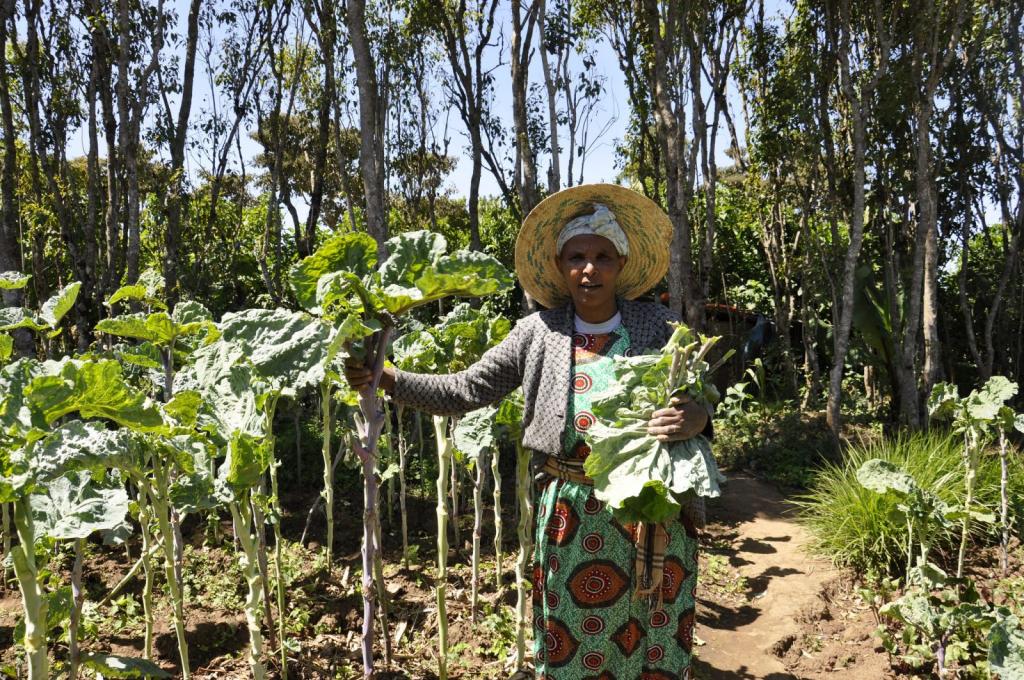
Model farmer Bekelech Belachew harvesting her climate-smart collard greens. Photo: G. Ambaw (CCAFS)
“I’m doing this to get out of poverty, not to make my husband happy,” said Bekelech. The question is how to increase the number of farmers like Bekelech, so she is not a singular phenomenon, but rather a multiplier for gender-inclusive climate-smart agriculture (CSA). To address this challenge, UN Women and CCAFS are combining forces to conduct a gender-based needs assessments on engaging women in CSA practices to enhance resilience and create economic empowerment for women farmers.
Read more:
Doyogena climate-smart landscape is a collaborative partnership between Inter Aide, the International Centre for Tropical Agriculture (CIAT), CGIAR Research Program on Climate Change, Agriculture and Food Security (CCAFS) and the International Livestock Research Institute (ILRI), with support from the Feed the Future Africa RISING program of the United States Agency for International Development (USAID). As part of "Building livelihoods and resilience to climate change in East and West Africa," this project is funded by the European Union.
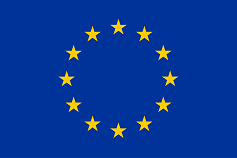
Meron Tadesse is a Research Assistant for CCAFS East Africa. Gebermedihin Ambaw is a Research Associate for CCAFS East Africa.

